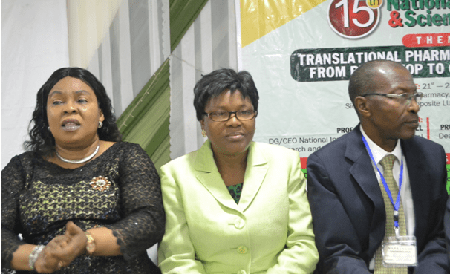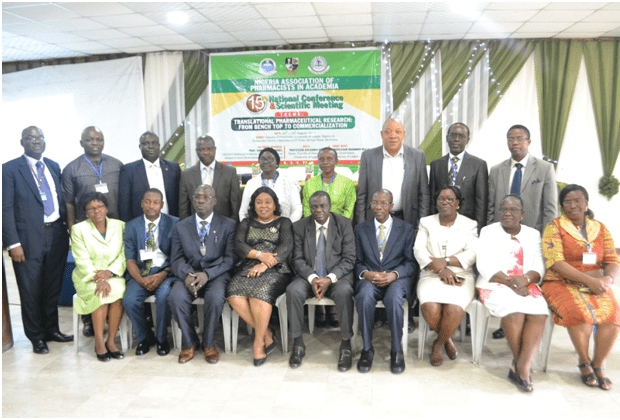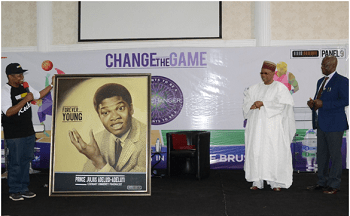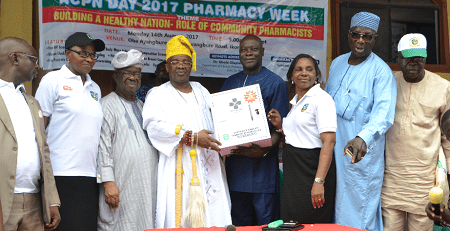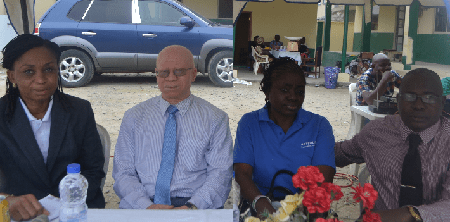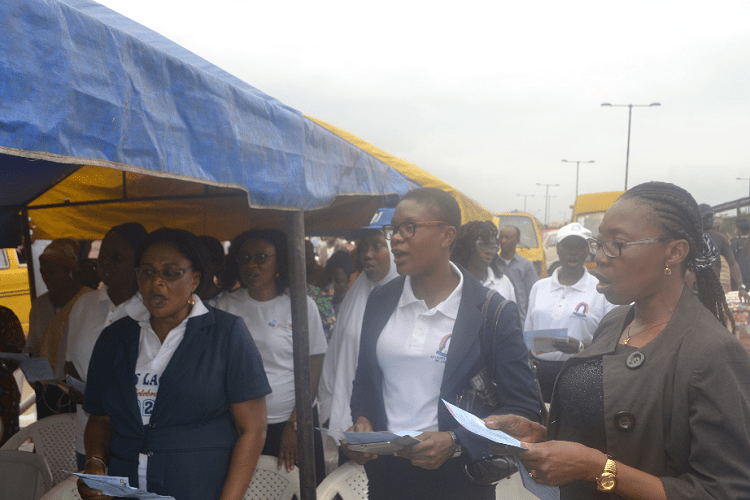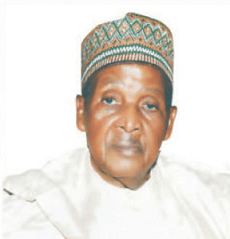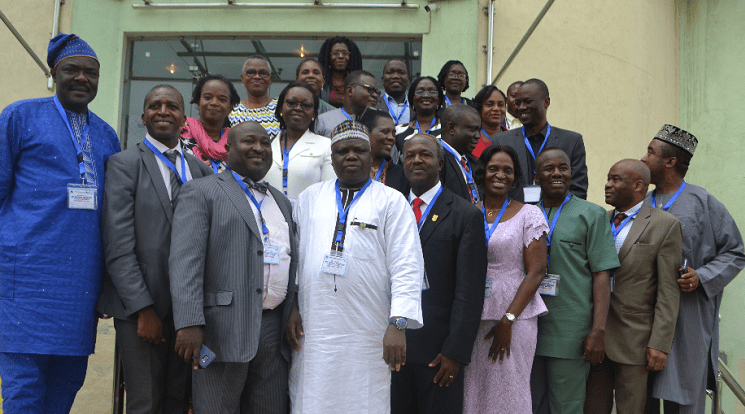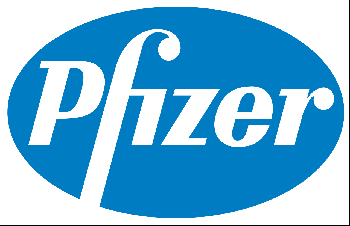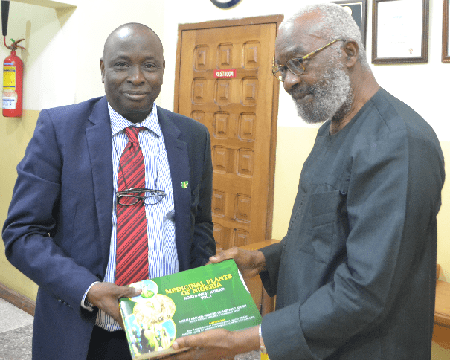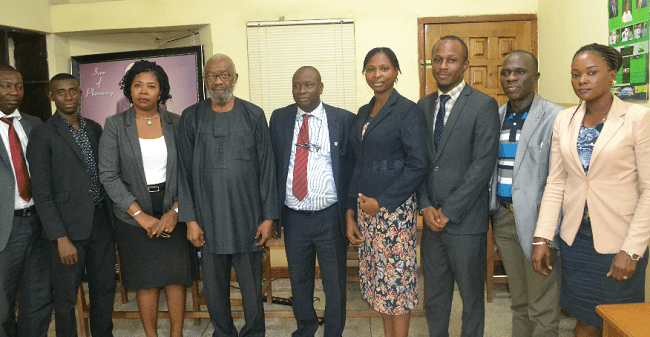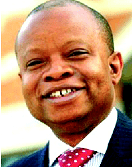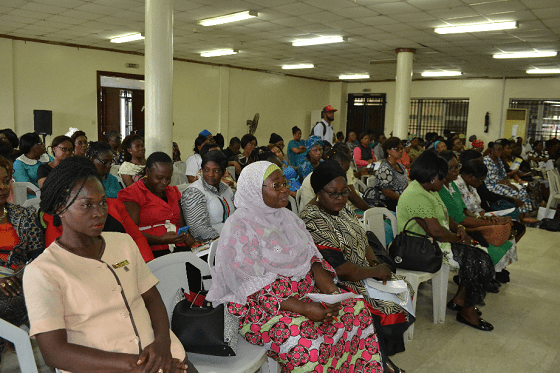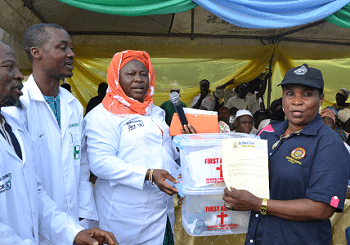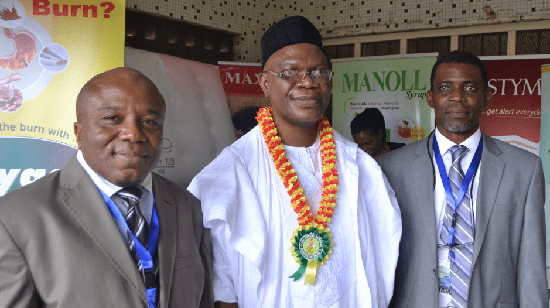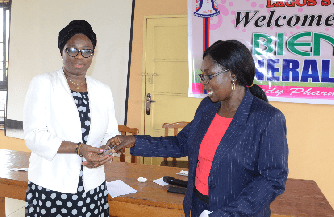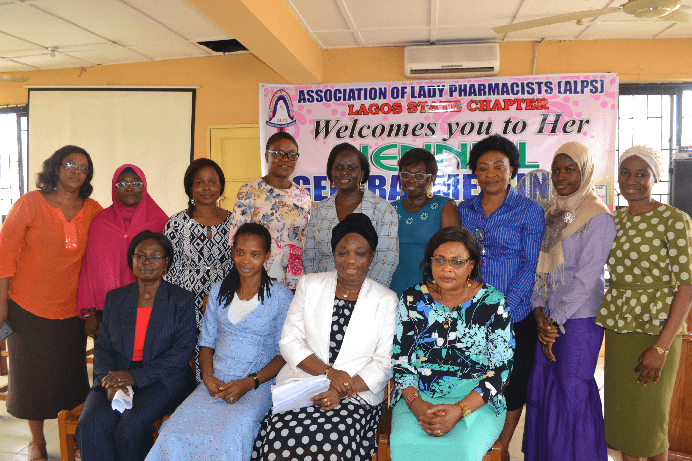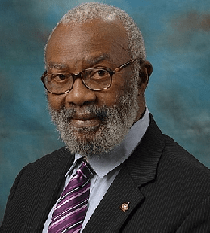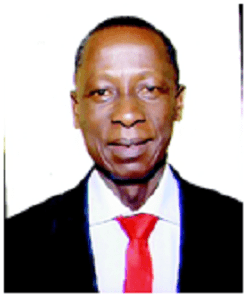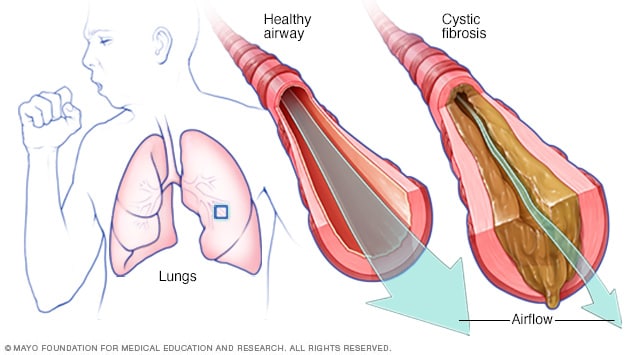 Pharm. Dahiru Suleiman Wali is one of few senior citizens in the country who have in-depth experience in the different aspects of pharmacy practice (hospital, industrial and community). In this interview with Pharmanews, the 82-year-old veteran recounts his passion for the profession, while suggesting ways for improvements. Excerpts:
Pharm. Dahiru Suleiman Wali is one of few senior citizens in the country who have in-depth experience in the different aspects of pharmacy practice (hospital, industrial and community). In this interview with Pharmanews, the 82-year-old veteran recounts his passion for the profession, while suggesting ways for improvements. Excerpts:
Tell us a bit about your early years.
I was born in Kano City on 23 July, 1935 to the late Walin Kano, Sulaiman and the late Hajiya Hadizatu-Kubura, popularly known as Mainama. My father died in 1939 when I was barely four years old. I had to depend on my mother for my well-being and upbringing. I started my primary school education in 1942 at the Kefar Kudu Elementary School (at the Emir’s Palace), before proceeding to Kano Middle School from 1948 to 1952 and Katsina Principal Secondary School, Katsina from 1953 to 1954.
I was at the School of Pharmacy, Zaria from 1954 to 1957, when I graduated as a pharmacist. Thereafter, I travelled to the United Kingdom and attended Bath Technical College, from 1961 to 1963. It was at Bath that I met my present wife, Judith, a German, who was in England from Germany to improve her language skills. I graduated from the college in 1963 and married Judith (Nee Jutta Hans-Georg Schneider) on 28 August, 1964, in London.
I worked briefly for a pharmaceutical company, Parke-Davis, in Hounslow, Middlesex, UK. Later, I got admission into University of Salford, where I studied Chemistry and Zoology and graduated with a degree in 1968. I was able to get through with my studies with the help of a scholarship from the Northern Nigerian Regional Government at that time. Later in the year, I returned to Nigeria with my wife.
Where else did you work after your experience at Parke-Davis?
My working career took me to Ilorin, Bida and Kaduna. Upon graduation in 1957 as a pharmacist, I was employed by the then colonial government of Northern Nigeria and posted to General Hospital, Ilorin (capital of present day Kwara State) as assistant pharmacist, equivalent to present-day internship.
In 1958, I was posted to Bida General Hospital (in Niger State) and served as the pharmacist-in-charge. I did not stay long in Bida, as I was transferred to Kaduna and served again as pharmacist-in-charge of the Kaduna Nursing Home, which is now Barau Dikko Teaching Hospital of the Kaduna State University (KASU) in Kaduna. Kaduna was then the seat of the Northern Nigeria Regional Government.
Upon my graduation from Salford University, I relocated to Nigeria and joined the Kano State Ministry of Education and was posted to Dala Girls Secondary School as Vice Principal and Science Teacher. I stayed for only one year, from 1968 to 1969, before joining the United African Company of Nigeria (UACN) in 1970, as a company executive.
You also worked in Zaria. What was the experience like?
Yes, I was posted to Zaria to oversee A.J. Seward factory, a subsidiary of UACN, with Kano and Kaduna under my supervision. The company produces pharmaceuticals, cosmetics and other household commodities. In a short time, I was promoted to be in charge of UACN pharmaceutical products, which is akin to that of the national marketing manager. I was posted to Kingsway Chemists of Nigeria Limited, another subsidiary of UACN and relocated to the head office in Lagos.
I retired from UACN in 1975 and started Tsamiya Pharmaceuticals Ltd in Kaduna in the same year. I operated Tsamiya as a retail pharmacy practice along the busy and high profile Ahmadu Bello Way in Kaduna in 1975. We later relocated to Sardauna Crescent in Kaduna and finally into our own corporate headquarters building on Yoruba Street in Kaduna.
I retired from active pharmacy practice 28 years later, in 2003.
How have you been spending your time in retirement?
Even in retirement, I have been busy with Boards and Councils appointments. I’ve been involved with the Pharmacists Council of Nigeria (PCN) and First Bank of Nigeria (FBN) Plc, among others.
Details of my life’s story, including my career exploits, can be found in the book, “D.S. Wali: An Icon of Community Pharmacy Practice in Nigeria”. I am presently living in my house along Dala Close in the GRA, Kaduna, with my wife. Our first son, Dr Muhammad Ujudud (Andreas) Wali studied Medicine at the University of Ibadan and is now a specialist physician sub-specialised in intervention cardiology and works in Harrisburg, Pennsylvania in the USA. He has two children. Our second and last child, Hajiya Aisha (Melanie) studied Business Administration and is married to Alhaji Ibrahim Dikko and they both live in Lagos with two lovely children of theirs. I have thus, four grandchildren.
Looking back, can you really say studying Pharmacy was a good decision for you?
Studying Pharmacy was a good decision for me, that even after acquiring a university degree in the UK and returning to Nigeria to be a college vice principal, I had to return to my practice as a pharmacist. I have practised as a hospital, industrial and community pharmacist from 1957, when I qualified, till 2003, when I voluntarily retired from my own practice and from the pharmacy profession.
What was the profession like in your day compared to today’s practice?
There are some differences in the practice between then and now. Not having enough pharmacists in the various practices was one of such, as we were few. The work was too much for the few pharmacists. Even though most pharmaceutical products were imported, there was adequate availability in the hospitals. The population was low though; but the management of the supply chain was perhaps better coordinated at that time, and the pharmaceutical products dispensed freely to the populace in publicly-owned hospitals, where most Nigerians attended anyway.
What are the challenges facing pharmacy practice in Nigeria and how can they be surmounted?
The problem of the negative effects of drug-drug interactions on patients is an issue that needs to be looked into. This is especially the case in privately-owned clinics where some do not have pharmacists. I want to further advocate for installation of computers in our pharmaceutical services departments in both public and privately-owned hospitals, with inbuilt software to guide pharmacists during dispensing. This will eliminate some medication errors and prevent untoward effect of drug-drug interactions in outpatients and inpatients.
How vibrant is pharmacy in the north compared to the south?
The vibrancy is about the same in each of the practices since all practices are regulated by the same regulatory agency, which is the Pharmacists Council of Nigeria (PCN). It is therefore expected for the level of practice to be the same, except that there are more of pharmacy premises in cities in the south than in the north, except for Abuja.
Are there one or two pharmacist(s) you admire in the profession?
I have always admired the late Pa P.O. Ishaku, FPSN. The late Pa Peter Omar Ishaku was our teacher at the School of Pharmacy, Zaria in the early 50’s. He remained in academics and was the sub Dean in the Department of Pharmacy and Pharmacology, Faculty of Science ABU, in the early 70’s. Himself, along with Professor Gabriel E. Osuide, FPSN; FAS, who was the founding father of Pharmacy in ABU, Zaria started the B.Sc (Pharmacy) degree programme in the University and later the department acquired Faculty status as Faculty of Pharmaceutical Sciences to date. Pa Ishaku died around 1981. May his soul rest in peace, amin. I am glad that the ABU Management has named the first Lecture theatre in the Faculty of Pharmaceutical Sciences of the University after his name as a form of immortalization.
If you have the honour of changing some things about pharmacy practice, what will they be?
That is a very good question. You see, every profession is dynamic. Pharmacy is very dynamic since it entails pharmaceutical products – their discovery, uses on patients etc. Pharmacists must avail themselves with the latest knowledge on every pharmaceutical product in order to advice and counsel fellow healthcare professionals and the patients on appropriate uses of these products respectively. I am a strong advocate of Continuing Professional Development (CPD) programme for pharmacists. The programme should be practiced-based and tied to the renewal of Annual Licence to practice, which is issued to pharmacists by the PCN.
SENIOR CITIZEN
Why I returned to pharmacy practice after foray into civil service – D. S. Wali
Pharm. Dahiru Suleiman Wali is one of few senior citizens in the country who have in-depth experience in the different aspects of pharmacy practice (hospital, industrial and community). In this interview with Pharmanews, the 82-year-old veteran recounts his passion for the profession, while suggesting ways for improvements. Excerpts:
What can you say are your biggest contributions to pharmacy profession?
Well, it is not for me to say. I believe the authors of the book – “D.S. Wali: An Icon of Community Pharmacy Practice in Nigeria” have done a wonderful job in x-raying my life and mode of practice. However, I think, without being immodest, it is my sincere belief in patient-centred dispensing approach, which is now given the title of pharmaceutical care that I believe made the difference in our pharamcy practice. That was the style of dispensing in my retail pharmacy practice of Tsamiya Pharmaceuticals Ltd, Kaduna, for 28 years.
Are there some major awards given to you in recognition of these selfless services?
My most memorable award remains the Fellowship of the Pharmaceutical Society of Nigeria (FPSN) given to me during the 1988 Annual National Conference of the Pharmaceutical Society of Nigeria (PSN) in Abuja. The Faculty of Pharmaceutical Sciences, ABU, Zaria had, on a number of times honoured me, especially with my being a member of the Faculty Board of many years standing.
I need to mention the fact that Professor A.T. Mora and his team who authored my biography have instituted a birthday anniversary lecture in my honour since 2015 when I turned 80. This year too, on 23 July, Professor (Pharm.) Magaji Garba, the Vice Chancellor, Federal University, Gusau will deliver the third lecture during my 82nd birthday anniversary.
If you were not to be a pharmacist, what other profession would you have opted for?
It is difficult to say. I qualified as a pharmacist in 1957, and proceeded to acquire higher qualifications at degree levels in the UK, returned to Nigeria, joined the civil service, since the government granted me scholarship and was indeed a Vice principal in a girls school under the Kano State Ministry of Education, but later left. I left to practise my first love, the profession of pharmacy again. So, I really wouldn’t have opted for any other profession but Pharmacy.
As an elder in the pharmacy profession, what is your advice to young pharmacists?
My advice to the young pharmacists is just one. It is the advice I have always given to pharmacists, both old and young. Do not chase the money. Pharmacy as a profession, is not about riches. It is for humanity and altruism. Practise the profession with the fear of God. Attend to every patient as you would to your relations. Same for compounding or manufacture of pharmaceutical products. Formulate as if you were the one to eventually use or consume the medication.






